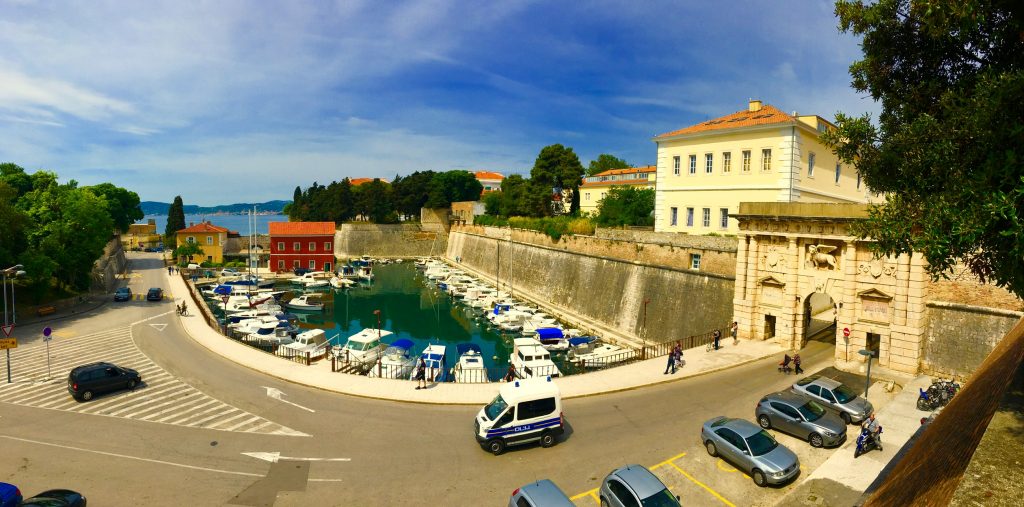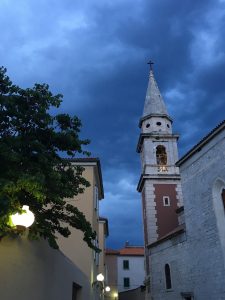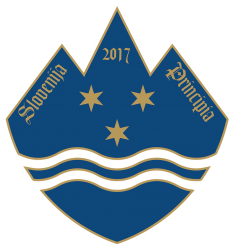For this post we will jump back in time for a moment to the city of Zadar.
Zadar is one of multiple little pockets of history within Croatia. The old part of the city has a medieval wall around it, which was originally built for defense from enemies. As a result of the wall, and the general size of the city and streets, most cars and buses are not allowed within. This meant we needed to get out of our comfy seats on the bus and hoist our luggage the 200 or so yards to the hostel. Thankfully, I packed light.
The next morning, we took a tour of the city with another fantastic and enthusiastic guide, Sime. We learned that the city was originally settled by the Illyrians more than 2,000 years ago. At one end of the city we were able to see three different pieces of wall; the innermost wall was the original built by the Illyrians when the city was established; the furthest wall out was the one that surrounds the city today, built in the 13th century; and the middle section was a tower built somewhere in the middle. We were also able to see a church built in the 5th century that now has a cute souvenir shop inside that sells local art and jewelry.
Later in the afternoon, we attended a graduate world literature class at the University of Zadar. The class had also read the English translation of A Castle in Romagna originally written by Igor Stiks and translated by Tomislav Kuzmanović and Russell Scott Valentino, which is a short novel that we had read in preparation for the abroad. It is also a novel that happened to be co-translated by the professor of the class, Tomislav.  As a joint class we discussed the novel from our two different perspectives. We talked about why we thought the novel has been chosen to be republished by Amazon Crossing (Amazon’s translation branch) and what themes made it attractive to a global audience. We discussed the themes of hopping between time periods, war, and forbidden love, and how these would be attractive to readers on the global market. One local student voiced her opinion that she was tired of the Croatia constantly being connected to war in their literature because she feels it does not accurately reflect the current state of of the country.
As a joint class we discussed the novel from our two different perspectives. We talked about why we thought the novel has been chosen to be republished by Amazon Crossing (Amazon’s translation branch) and what themes made it attractive to a global audience. We discussed the themes of hopping between time periods, war, and forbidden love, and how these would be attractive to readers on the global market. One local student voiced her opinion that she was tired of the Croatia constantly being connected to war in their literature because she feels it does not accurately reflect the current state of of the country.
 In the end, it was a great discussion with a lot learned on both sides. It was exciting to talk about the book with other students with a completely different view on the topic, as well as one of the translators of the novel itself. Thank you for hopping back in time with me to a discussion about a novel that hops around in time.
In the end, it was a great discussion with a lot learned on both sides. It was exciting to talk about the book with other students with a completely different view on the topic, as well as one of the translators of the novel itself. Thank you for hopping back in time with me to a discussion about a novel that hops around in time.
Sami Corbitt is a junior English major with a focus in creative writing and a minor in dance. Her cultural studies presentation was on caves and karst in Slovenia.


